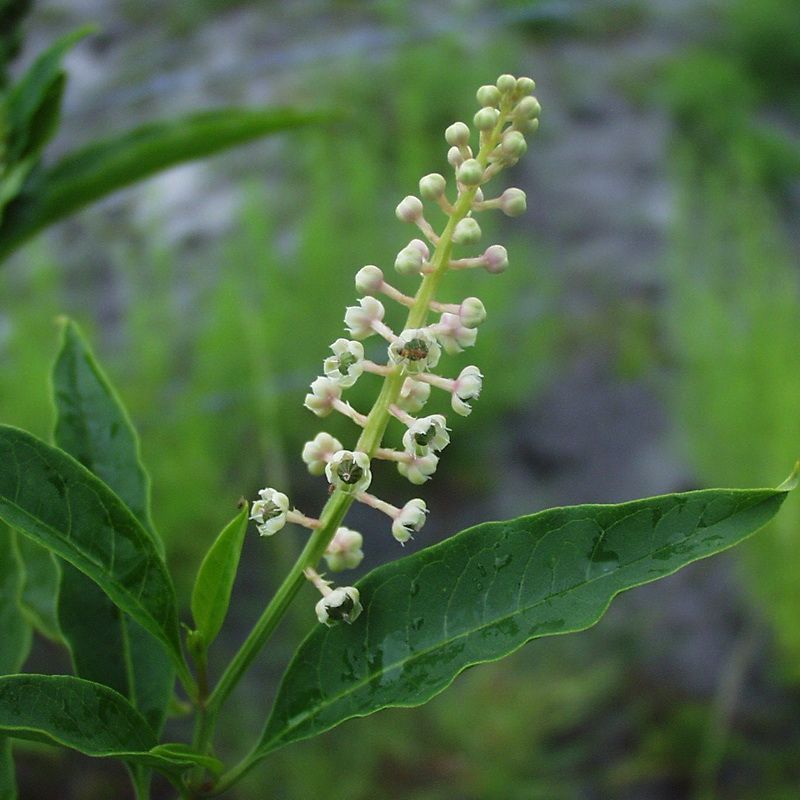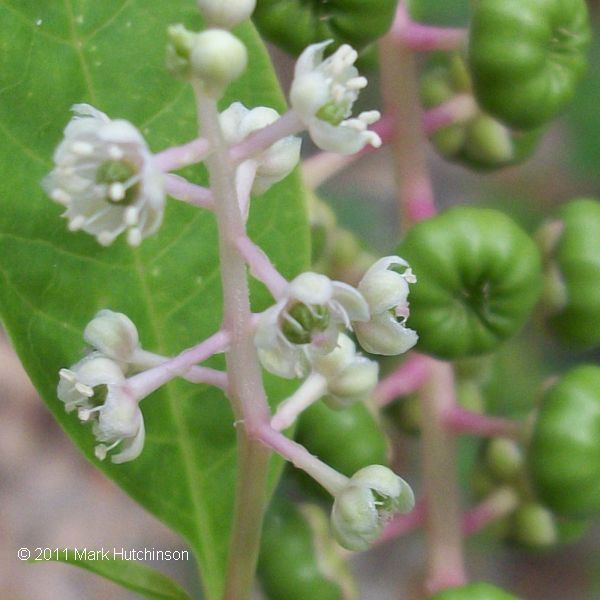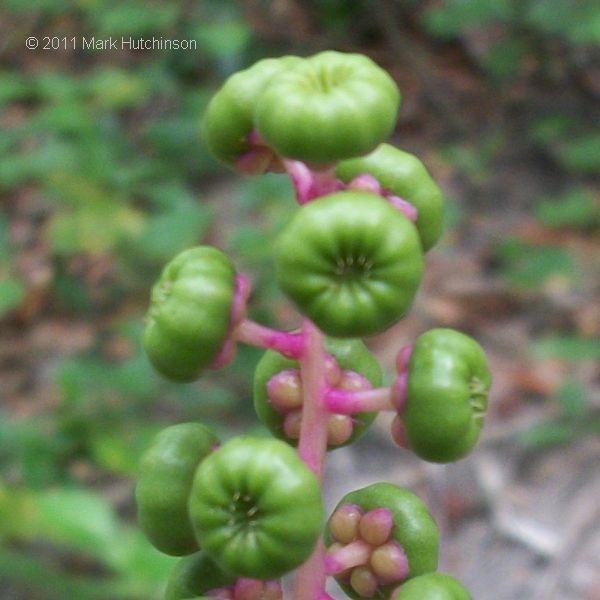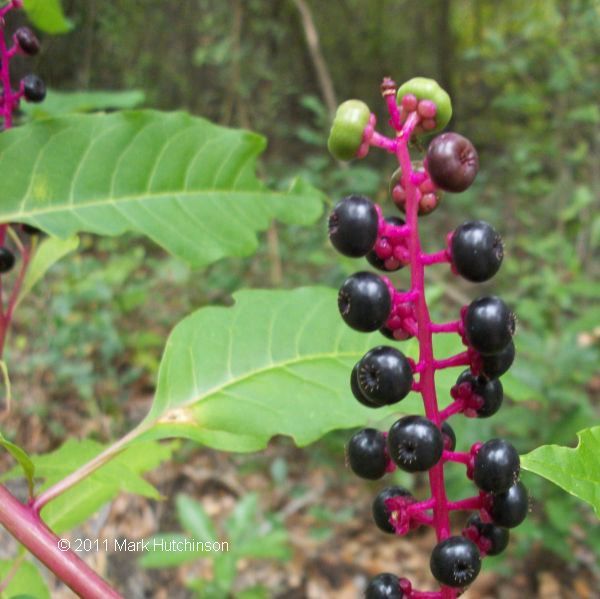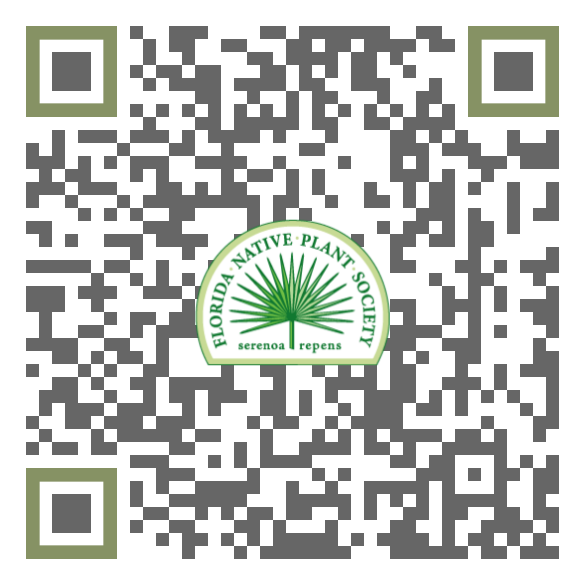FNPS Plant Database
Phytolacca americana
Nomenclature
Common Name:
Synonym(s):
Genus species:
Family:
Phytolaccaceae
Plant Specifics
Form:
Size:
Life Span:
Long-lived perennial
Flower Color:
Fruit Color:
Phenology:
Noted For:
Landscaping
Recommended Uses:
Considerations:
Availability:
Propagation:
Light:
Moisture Tolerance:
Always Flooded---------------------------------Extremely Dry
□□□□□□□□□□□□□□□□□□□□□■■■■■■■■■■■■■■■■■■□□□
Somewhat moist, no flooding -to- Very long very dry periods
Salt Water Flooding Tolerance:
Unknown
Salt Spray/Salty Soil Tolerance:
Moderate. Tolerant of salty wind and may get some salt spray
Soil or Other Substrate:
Sand, Loam
Soil pH:
Suitable to Grow In:
8A,8B,9A,9B,10A,10B,11

USDA zones are based on the average annual extreme minimum winter temperature.
Don't know your zone? Click here to search by zip code.
Vouchered In:
Ecology
Wildlife:
Attracts bees including Augochlora pura, Augochloropsis metallica, A. Sumptuosa, Dialictus miniatulus, D. Nymphalis, D. Placidensis, D. Tegularis, Evylaeus pectoralis and Bombus impatiens (Deyrup et al. 2002).
Birds eat the berries.
Native Habitats:
Comments:
Ethnobotany:
General Comments:




